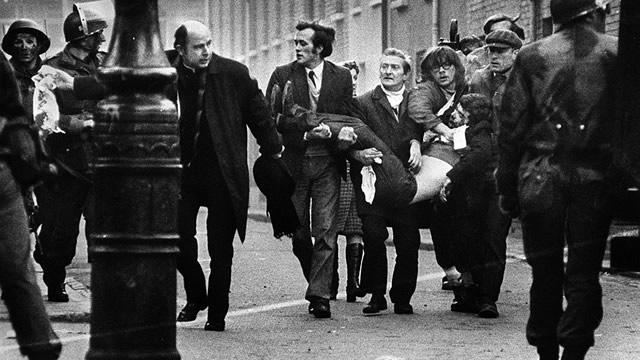Bloody Sunday: Ex-soldier continues to be questioned
- Published
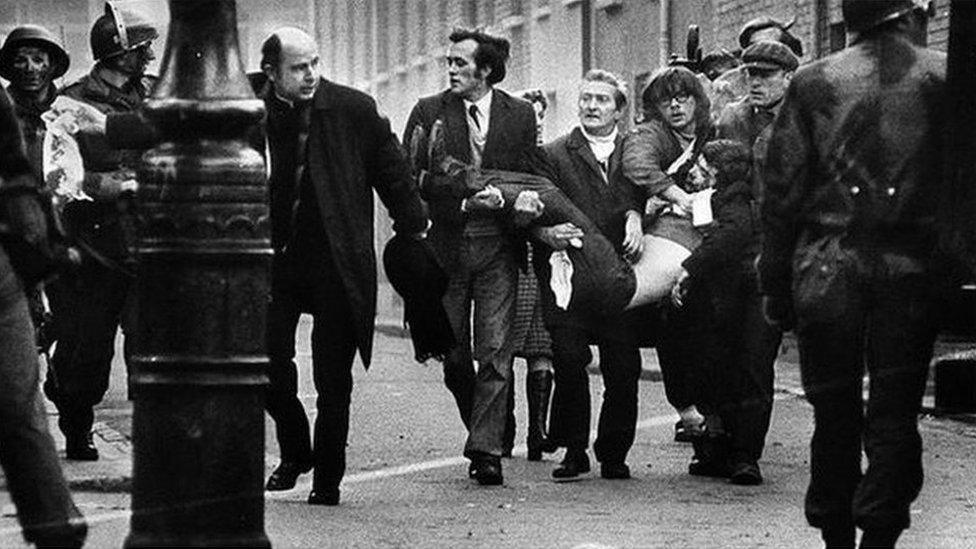
The 66-year-old man is the first person to be arrested as part of the Bloody Sunday investigation
Detectives are continuing to question a former soldier over the deaths of three people on Bloody Sunday in Londonderry.
Thirteen people were killed when British paratroopers opened fire on a civil rights march through the city in January 1972.
The 66-year-old former paratrooper was arrested in County Antrim on Tuesday.
It is understood he is being questioned over the deaths of William Nash, Michael McDaid and John Young.
He is soldier J, who was one of the soldiers who appeared before the Saville Inquiry.
'Giant step'
Leo Young, whose brother John was killed aged 17 on Bloody Sunday, told BBC Radio Foyle that he welcomed the news.
"A flood of emotions came into my head when I heard the news about the arrest," said Mr Young.
"A prosecution has to happen soon. We waited for over 40 years and this is a big step.
"I think about my brother every day. His life was cut short and I keep thinking about him because he would probably be married today.
"I was 24 at the time and going through those inquires was a real battle.
"This is a giant step and I feel for all the families involved."
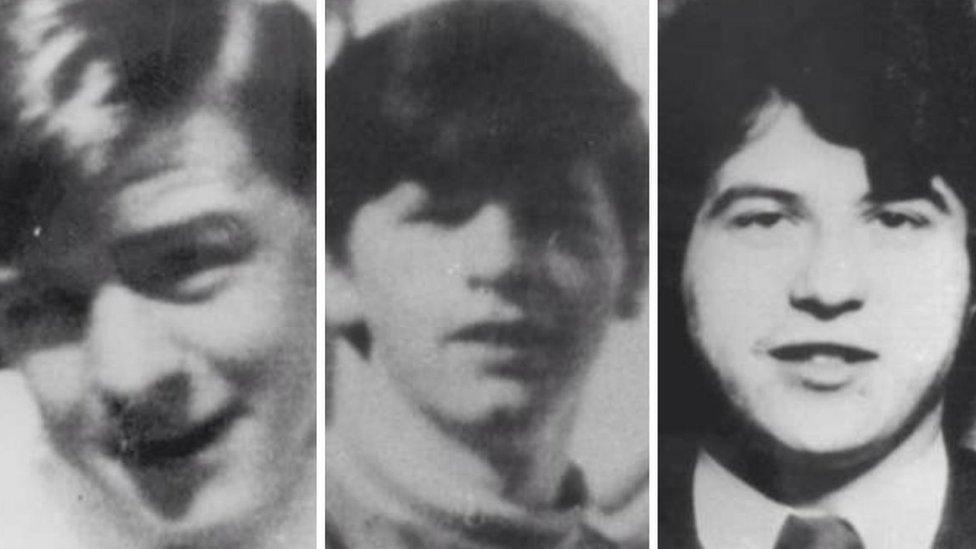
Michael McDaid, William Nash, John Young were killed on Bloody Sunday
John Kelly, whose brother Michael was among those killed on Bloody Sunday, said the arrest "gives fresh hope".
"This is a massive moment for the families and the city," said Mr Kelly.
"My brother's death is no different to any other death on that day. This is major development and I hope there is an arrest in relation to my brother soon.
"Hopefully there will be prosecutions soon."
Public interest
Sir Gerald Howarth, a Conservative MP and former defence minister who represents former soldiers on duty at the time of Bloody Sunday, said there are hundreds of families dealing with murder across Northern Ireland.
"We cannot forget that a lot of families haven't had justice yet," said Sir Howarth.
"It would be good if we could just close this chapter.
"I'm not excusing what happened but I do not think it is in the public interest for former soldiers to be prosecuted.
"This is now a matter for the prosecuting authorities though."
Clarification 9 April 2019: This article was amended to remove a reference to the death of John Johnston. This reflects the Bloody Sunday Inquiry's finding about Mr Johnston's death several months after he was wounded in Derry on 30 January 1972. The inquiry report states that his death was "not the result of any of the wounds he sustained on Bloody Sunday".
- Published10 November 2015
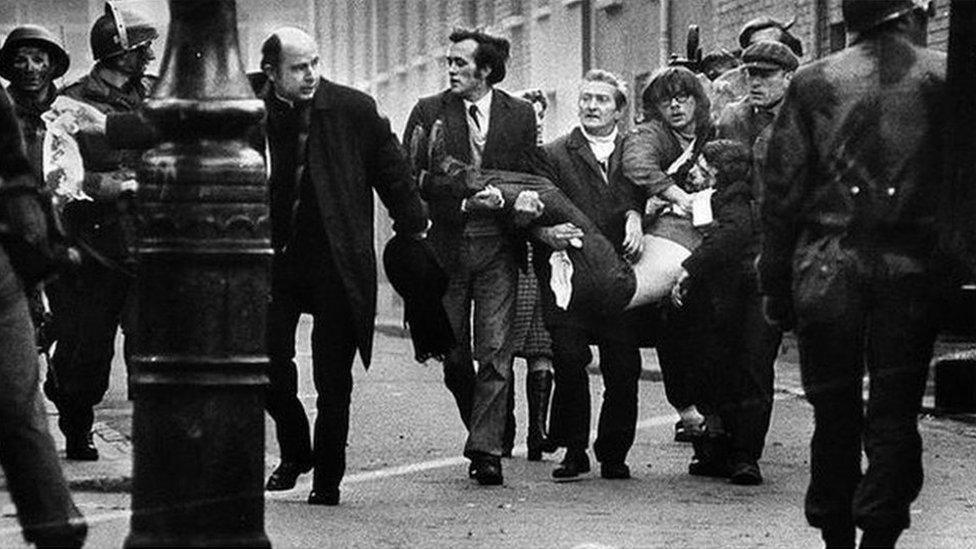
- Published10 November 2015
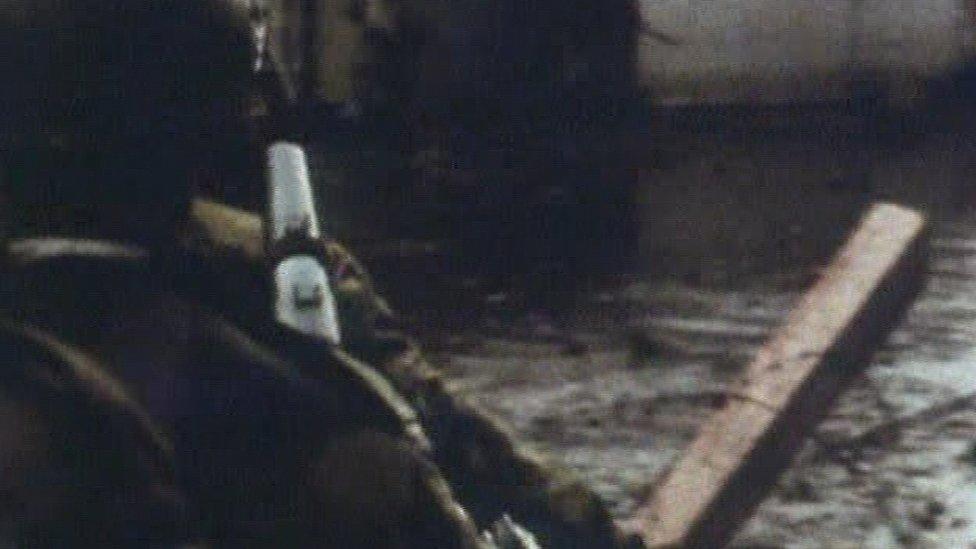
- Published15 June 2010
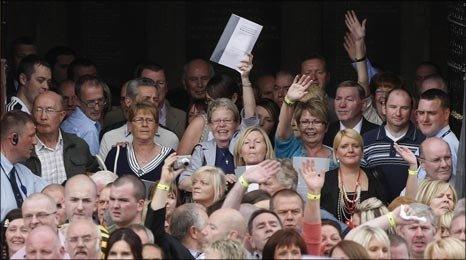
- Published17 September 2015
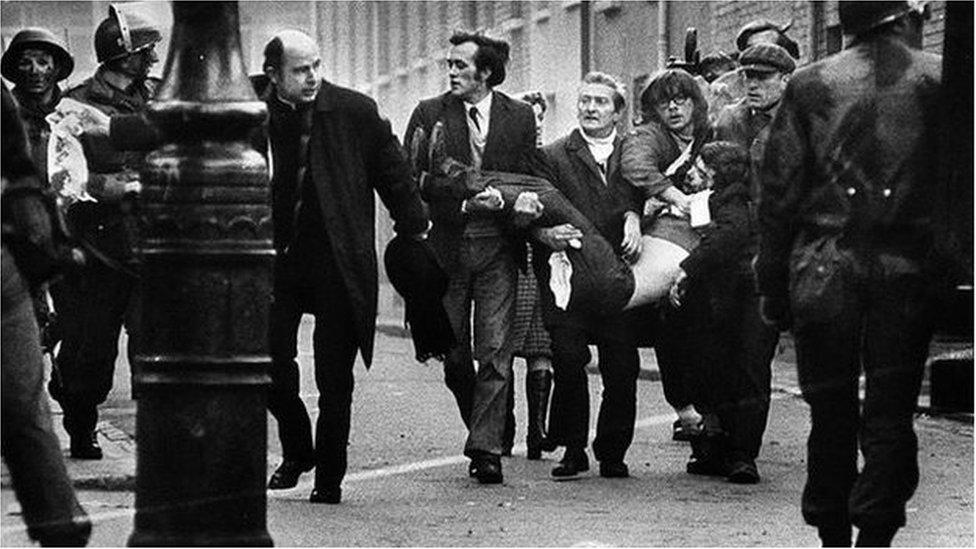
- Published5 June 2015
